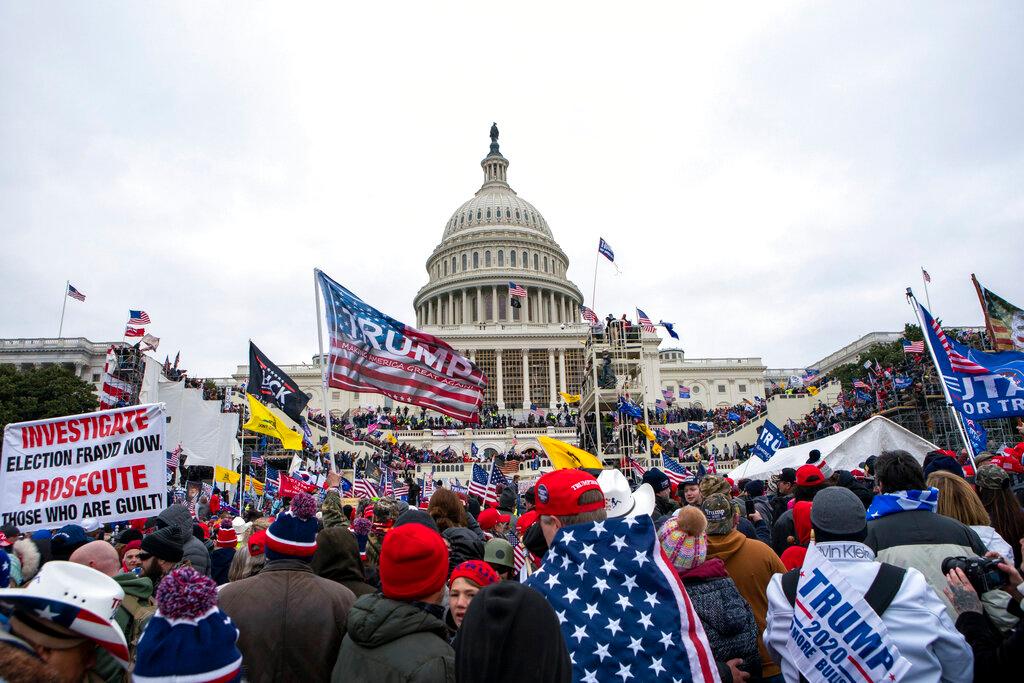
When the sun rose on the morning of January 6, 2021, everyone at the U.S. Capitol was already prepared for a long day of debate and an unusual election certification.
Republicans had announced they would mount objections to a number of states’ votes, and their objections were supported by tens of thousands of protesters who'd come to attend a rally headlined by a president who had refused to concede.
“I frequently preside over tough issues (in the House) and thought the Speaker might need my help,” said Rep. Diana DeGette, recalling why she made it a point to be in the House chamber that day.
Because of social distancing, lawmakers were spread out and the Denver Democrat ended up seated in the House gallery, the wide balcony that rings the chamber’s floor. Fellow Coloradan Jason Crow sat a few rows ahead of her, next to Florida’s Val Demings.
“Some of us jokingly looked at Jason and Val, both former military and law enforcement, and we said, 'Well, you guys might have to protect us.' And everybody was laughing,’” the DeGette recalled.
But it wasn’t long after debate began on the Arizona count that texts started arriving from family and friends, worried about what was happening around the Capitol. DeGette doesn’t have social media on her phone, so she had to get updates the lawmakers around her. And she couldn’t believe it.
“Somebody said, ‘There’s somebody climbing the wall outside,’ and I thought, ‘Well that’s ridiculous,’ and then somebody said, ‘There’s people in Statuary Hall right outside the House chamber.’ And I thought, 'That’s ridiculous too.”
She soon discovered it was anything but ridiculous.
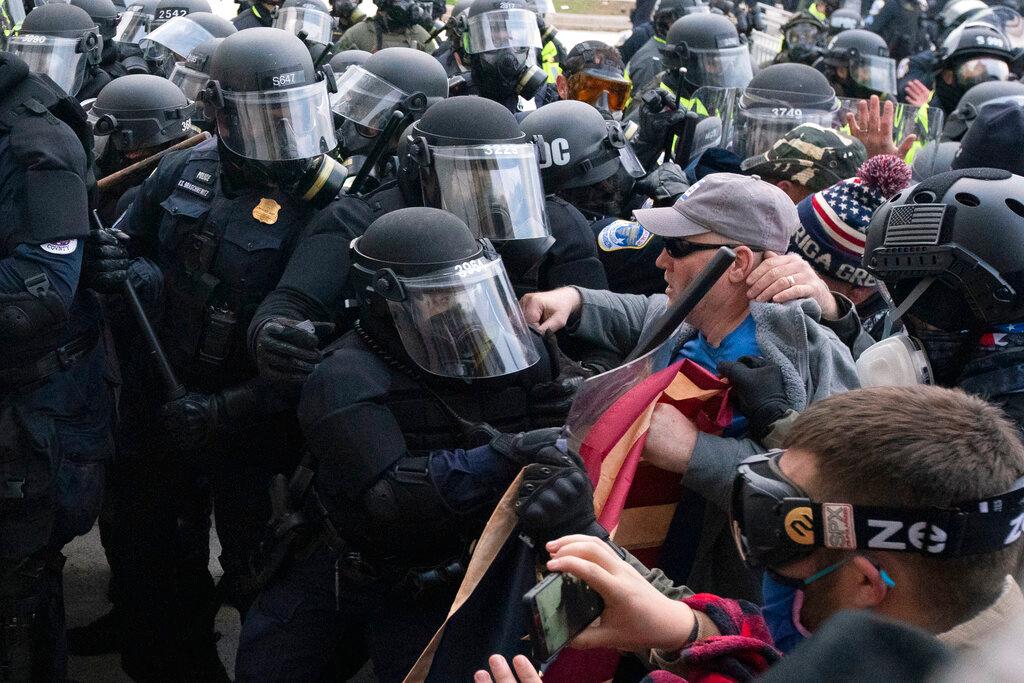
'The pounding is getting louder'
As protesters breached the Capitol, the Senate and House gaveled out. DeGette recalled security running around and locking doors, yelling at everyone in the chamber to get down behind the seats and take out escape hoods, which are used in case of smoke or gas.
DeGette never used hers, but the distinctive hum they make remains a sound she associates with that day.
“So here we are lying there. The chaplain’s praying. The pounding is getting louder. And some of us were yelling ‘Don’t forget us,’ because we’re still in the gallery,” she said. “And pretty soon we could hear people start to pound on the doors of the gallery.”
For this story, CPR tried to speak with the members of the Colorado delegation who were in the chambers when they were locked down. Republican Reps. Lauren Boebert and Ken Buck declined to be interviewed. Another member of the delegation, Democratic Rep. Ed Perlmutter, was in a different part of the Capitol complex during the breach.
Crow said that as the House was locked down, his brain went into “Ranger mode.”
“I wasn’t really allowing myself to kind of process or think about it,” he said. “I was just triaging the information and trying to figure out our way out, because at that moment, we were trapped and surrounded by a violent mob.”
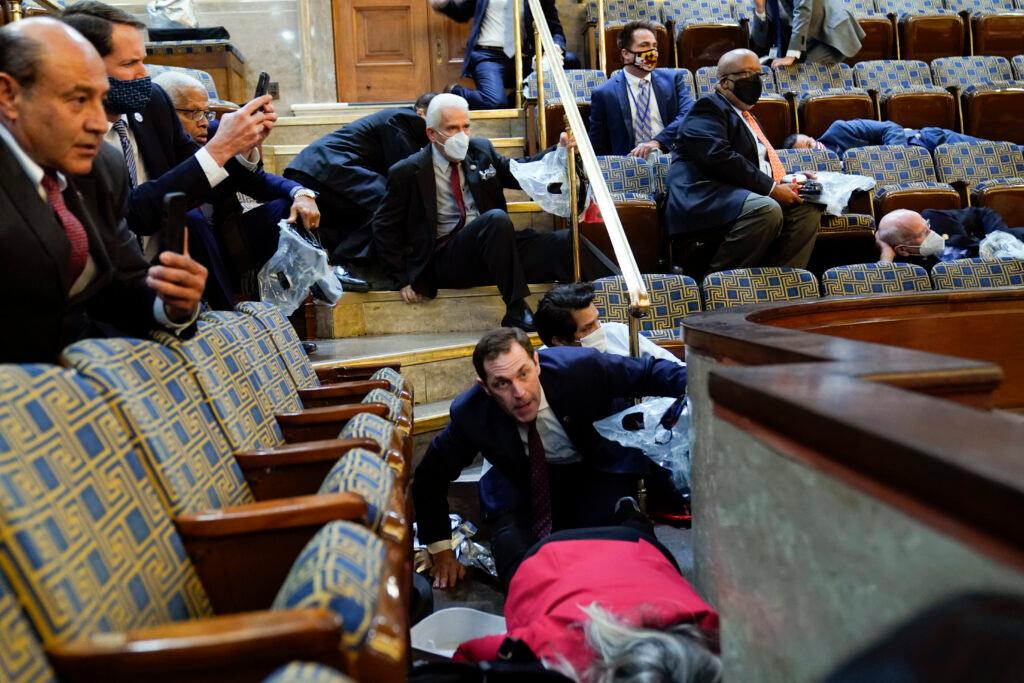
A famous photo shows Crow holding the hand of a panicked-looking Rep. Susan Wild of Pennsylvania, comforting her as she lays back on the floor of the gallery.
On the floor below, Rep. Joe Neguse, who had been tapped to help lead the arguments for the Democrats that day, spent those chaotic minutes reaching out to his family.
“I texted my wife to tell her that I loved her and our daughter, that I was sure everything would be fine, to kind of reassure her. It was a tense moment,” he said.
‘Many years since I’d seen that type of violence’
On the Senate side, John Hickenlooper admitted it took him a while to realize the seriousness of the situation.
It was Hickenlooper’s first full day at work in the Senate, after being sworn in just three days earlier. It wasn’t until he made it out of the chamber to a secure location that he got his first real look at the situation — when the TVs were turned on.
“I still thought that, you know, a protest might get a little out of hand, but people wouldn’t break into the U.S. Senate and wouldn’t be threatening to kill the vice president,” he said. “If I had known what was going on I would have been much more concerned and fearful.”
Photos and video from the riot showed a makeshift gallows on the lawn of the Capitol, and gangs of men who moved through the Capitol chanting “hang Mike Pence.”
With lawmakers and staff hidden away, the rioters took their anger out on the people who were visible: the law enforcement protecting everyone in the building. That’s something Sen. Michael Bennet has a tough time reconciling, a year later.
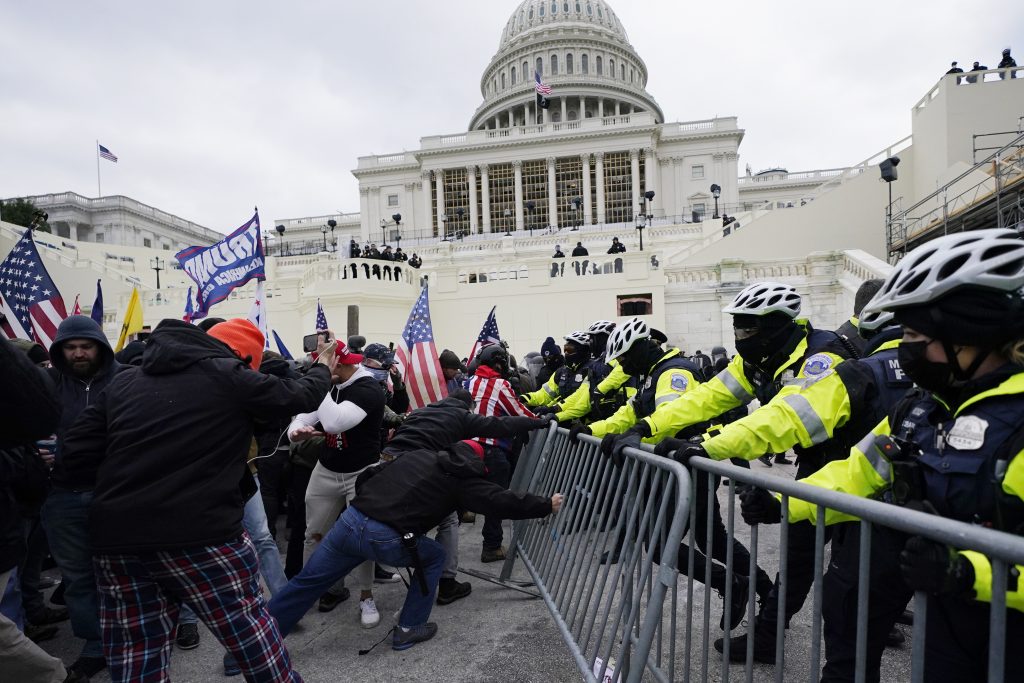
“There were police officers in our capitol in tears because of the racist statements and epithets that were thrown at them,” he said. “There were police officers who had served this country in uniform — in addition to the uniform they were wearing that day — who were called traitors by the people that were attacking the Capitol and now there are members of Congress who now say this was like tourists visiting.”
The violence has remained raw for Crow, too; in those hours, his two worlds collided — his past serving in war zones, and his present in Congress.
“I never thought in a million years that I’d see both of those worlds come together for me personally. Prior to January 6, it had been many years since I’d seen that type of violence,” he said. “It was life I thought I had left behind me in many ways.”
Crow said his daughter now gets fearful whenever his work in Washington goes long and he isn’t able to make it home when she expects him.
For DeGette’s family, Jan. 6 brought back painful memories of another frightening day during her career at the Capitol — Sept. 11, 2001. DeGette plans to spend the first anniversary of the riot making sure her children, who are now adults, are okay.
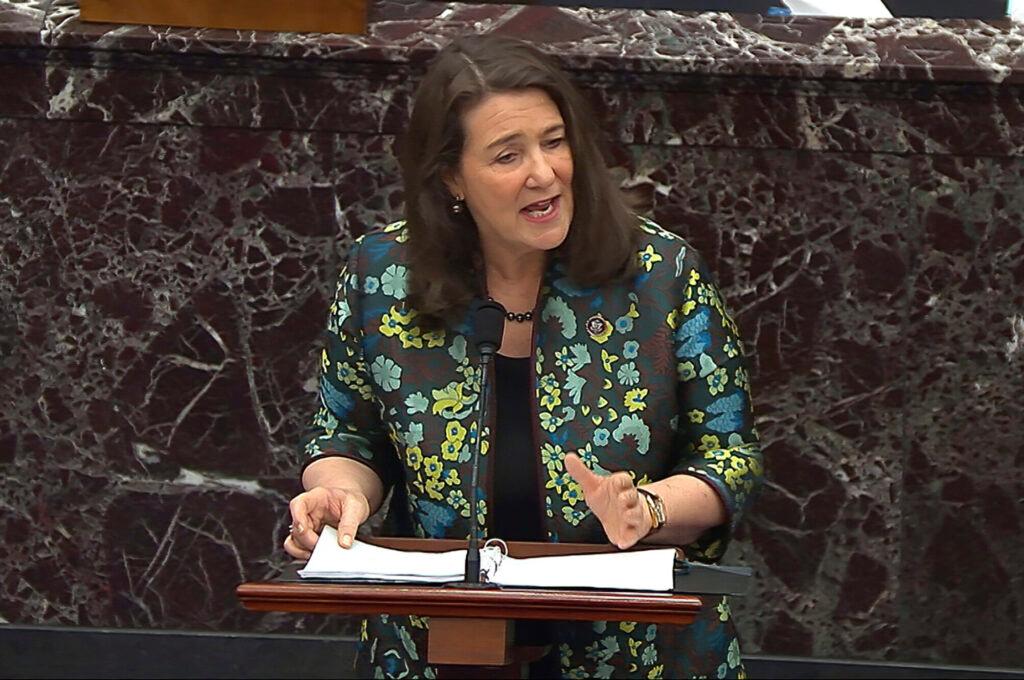
That day, “was almost like PTSD for them,” she said.
All members of the Colorado delegation have praised the law enforcement officers who responded that day. And all except for Boebert voted for a bill to award congressional gold medals to the Capitol Police and the Metropolitan police who responded to the insurrection.
Boebert said she objected to the fact the resolution also honored an officer who was killed in a separate and unrelated incident.
A vote delayed, but not derailed
In some of the darkest moments of the lockdown on Jan. 6, Crow felt like Congress might have actually reached a turning point — one for the better.
“I remember very clearly, all of us sitting in that secured room waiting for the Capitol to be cleared, coming together and talking about how this was enough. We can’t allow this to happen again. There was a sense of solidarity,” he said.
But the day also brought plenty of anger and recrimination, with reports of lawmakers on both sides of the aisle blaming those who objected to the election certification for fanning the anger that was unleashed on the Capitol.
Still, after the building was cleared and secured that evening, Senators and Representatives went back to work to finish the certification, leaving their secured rooms to head back to the chambers they’d had to flee hours earlier.
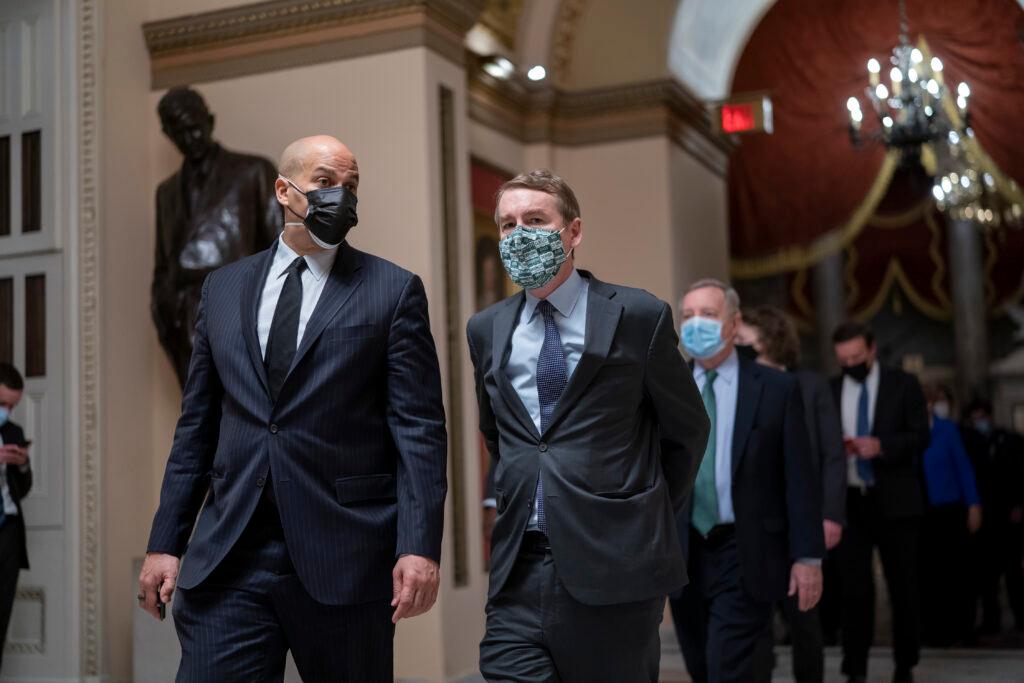
That late-night session is one of Neguse’s defining memories of the day; he took to the floor to implore Republicans to drop their objections.
“You could still see the Capitol was in ruins ... all kinds of destruction,” he said. “I had hoped that more of my colleagues would rise to the occasion and ... given all that had happened, do what was best for the country. And many did. And I applaud them for that. And I am grateful for that. But yes, I was shocked that so many did the opposite.”
In the end, eight Republican Senators and 139 Representatives voted to object to the vote counts from Arizona and Pennsylvania. Boebert and Rep. Doug Lamborn were among them. Buck was not; he had consistently argued against the objections, saying the Constitution was clear that Congress’s only role is to count the electors.
Buck told CPR News the day after the riot that what happened at the Capitol was a crime and should be prosecuted.
“But it is not a coup, and any member of Congress that suggests it was a coup is using the kind of rhetoric we need to stop using,” he said.
Crow takes the opposite view.
“These were insurrectionists. They were rioters. They were people out of blood and were trying to undermine our democracy,” he said. “There was a protest earlier that day. That’s not what occurred at the U.S. Capitol later that afternoon.”
Turning point, or breaking point?
Bennet has thought a lot about democracy over the past year.
On Jan. 6, he wondered how other countries, like Russia and China, would capitalize on the riot to emphasize the shortcomings of democratic governments, and what it would mean for people living under autocratic regimes who had seen America as a model to strive for.
“I worried a lot that people would lose hope all over the world as a result of what happened here,” he said.
If Bennet has salvaged any hope for himself out of the riot, it lies with the bonds he’s seen some of his colleagues forge across the aisle, after going through danger together.
“We believe in the Constitution, we believe in democracy. (We) don’t believe we were sent here just to create as many Twitter followers as we can, just to raise as much money as we can, just to foment as much division in the country as we can. There are some people like that here, and it’s very hard to work with them. But for others, I think this has actually built opportunities.”
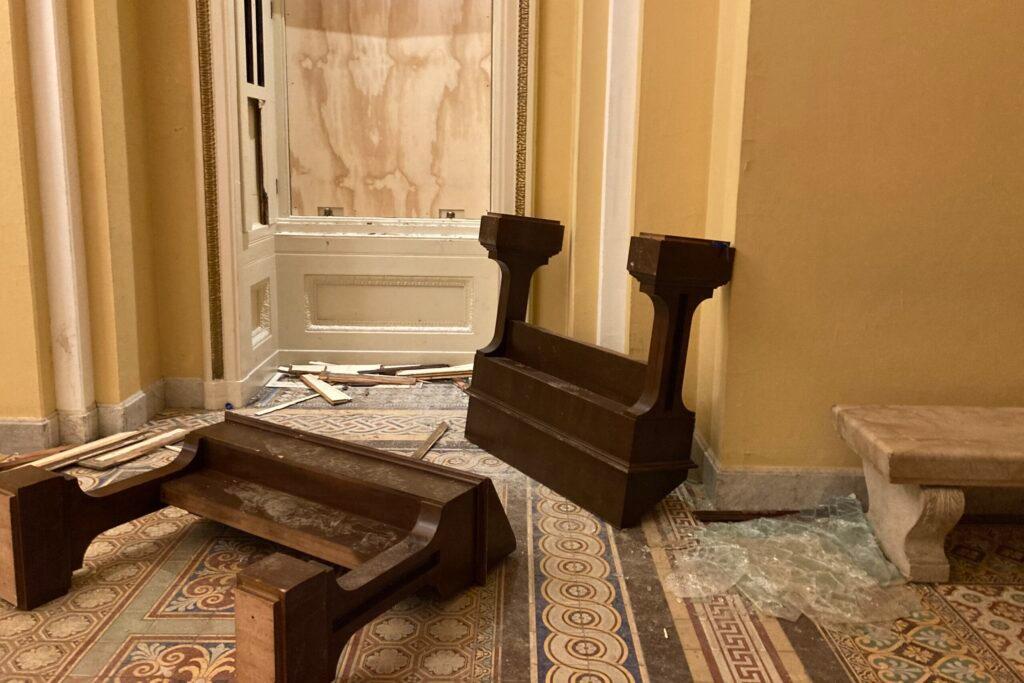
But that optimism isn’t universal.
On the House side, Neguse feels things have gotten more tense over the past year. Politics were already vitriolic when he was elected in 2018, and in some ways he thinks that’s just accelerated. He fears lawmakers – and the public – have come to see people with different views as enemies.
How to get people, in and out of politics, to try to understand each other is a conundrum all the lawmakers in this story mentioned: how can the United States improve its political discourse?
“Put down the Twitter feed. Put down Facebook. Turn off cable news and reach out to somebody,” said Crow, “reach out to somebody that maybe you don’t agree with and have a conversation.”
For her part, DeGette has been trying to change the conversation in the media, urging more coverage of policies and less of personalities.
“The press is focusing on these very few members who are saying outrageous things to get attention. So it’s this vicious cycle that continues,” she said.
The Colorado lawmakers in this story all said the important thing is that democracy, though challenged, won out on Jan. 6. And that's the message Neguse plans to share with his young daughter when she asks him about that day.
“Our county has been tested on numerous occasions — we had a civil war — but we’ve always, at the end of the day, rose to the occasion,” he said. “And I think that to me is the lesson of Jan. 6.”
Editor's Note: Rep. Doug Lamborn was in the House chamber on January 6, 2021; an earlier version of this article incorrectly stated he was elsewhere in the Capitol. The story has been updated.









